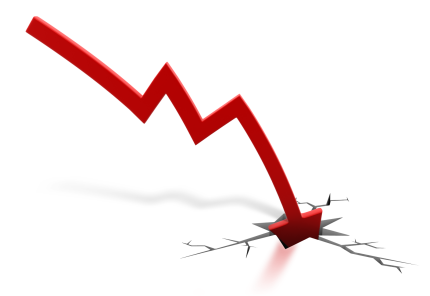The markets are ugly. This market crash is ugly.
Volatility, as measured by the Cboe Volatility Index (VIX) just spiked to 32.76.
Traders are running scared. Stocks are plunging. Inflation is out of control. Central banks are racing to cool inflation. The Dow fell from its April 2022 high of about 35,500 to 30,663. There are concerns that if we break support dating back to late May, the pullback from this market crash could get worse.

As BNY Mellon strategist John Vellis said earlier this week: “The May inflation data was so concerning that we think the Fed will react even more aggressively in moving rates ‘expeditiously’.” He also believes we could see a 75bps hike this week, up from an initial forecast of 50.
In addition, CNBC notes, “Friday’s inflation report was a negative catalyst for markets that were already pricing in worries about hot inflation and recession fears. CPI rose 8.6% year over year, well above the 8.3% expected by economists surveyed by Dow Jones.”
Unfortunately, no one knows what comes next in this market crash.
The Federal Reserve may not be able to get inflation under control. They could also push us right into a recession with their actions. All we know is that the uncertainty and the fear is likely to send volatility screaming even higher.
So, what’s the best way to trade the current market crash?
As we noted on January 6, investors can always use the volatility ETFs and ETNs, which have done well so far. These include:
ProShares Ultra VIX Short-Term Futures ETF (UVXY)
The UVXY ETF was designed to match twice the daily performance of the S&P 500 VIX Short-Term Futures Index. When we brought the UVXY to your attention, it traded around $12.70. It’s now at $17.17 and could soon see $20.
iPath S&P 500 VIX Short-Term Futures (VXX)
The VXX ETN, which provides exposure to the S&P 500 VIX Short-Term Futures Index, VXX traded around $19 on January 6. It’s now up $25.51 and could see $30.
ProShares VIX Short-Term Futures ETF (VIXY)
The VIXY ETF provides long exposure to the S&P 500 VIX Short-Term Futures Index, which measures the returns of a portfolio of monthly VIX futures contracts with a weighted average of one month to expiration. VIXY traded around $16 on January 6, and is now up to $20.30.
With volatility likely to spike even more, it’s important to protect your portfolio.





